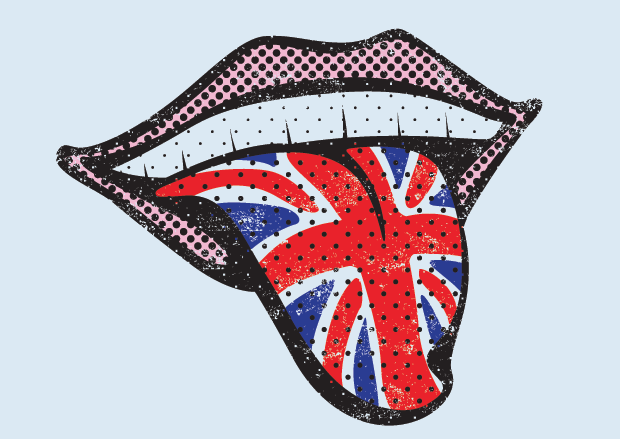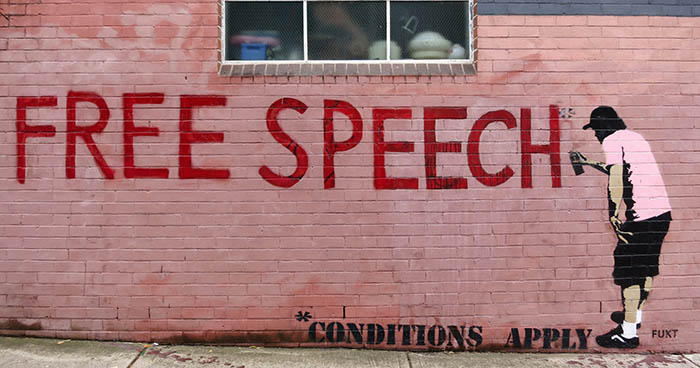7 Mar 2019 | Campaigns -- Featured, Statements
[vc_row][vc_column][vc_column_text]Responding to calls from politicians for founder of the far-right English Defense League Tommy Robinson’s videos to be removed from YouTube, Jodie Ginsberg, CEO of Index on Censorship said:
“Tommy Robinson is a vile bigot but this level of government intervention on what is and is not acceptable speech should make us all worried. Investigation into whether something is a crime – and prosecution of it – is what we have an independent police force and judiciary for.
“If Robinson has broken the law (threatening/inciting violence, engaging in intimidatory behaviour) he should be investigated and prosecuted accordingly. We have plenty of laws that can deal with this.
“Politicians should not be leaning on anyone to enforce the law – forcing social media companies to act as law enforcers without any due legal process undermines fundamental principles of democracy.”[/vc_column_text][vc_basic_grid post_type=”post” max_items=”4″ element_width=”6″ grid_id=”vc_gid:1551968738540-b660aa54-ea07-4″ taxonomies=”6534″][/vc_column][/vc_row]
17 Mar 2017 | Academic Freedom, Digital Freedom, News and features
[vc_row][vc_column][vc_column_text]
Many universities pay lip service to freedom of speech on campus, but actions often tell a different story. In an effort to limit insult and offence, universities also limit freedom of expression. Spiked’s survey of British universities examines the policies and actions of faculty and students and ranks them using a traffic-light-themed system.
A ranking of “red” means that the university in question has banned and actively censored ideas on campus, “amber” signifies that it as chilled free speech through intervention and “green” indicates that the university has a hands-off approach to free speech. Over the last three years, the Spiked’s analysis has seen the steady decline of free speech on campus.
Here are just three examples from the last few weeks.
Lincoln University Conservative Society censored for criticising state of free speech on campus
The Lincoln University Conservative Society has been suspended from using social media by the Lincoln Student Union after publishing tweets that highlighted the university’s lack of free speech.
“Due to SU orders this Twitter account will no longer be active. We hope to return on 1st May. Sorry for any inconvenience,” the Conservative Society tweeted after a students’ union disciplinary hearing found that two tweets by the society brought the university into “disrepute.”
One tweet complained about a questionnaire those who wish to run in student union elections are required to submit. The other included a screenshot of a Spiked article which gave Lincoln the worst possible Free Speech University Ranking. According to Spiked, the university administration has a better ranking and therefore less restrictive free speech policies than the students’ union. The union’s policies allow them to restrict what they deem to be offensive, racist or fascist speech, and ban speakers who may draw controversy as part of their Safe Campus policy.
This is not the first time the students’ union has been criticised for violating students’ right to free speech. In 2016 it has banned use of the social media app Yik Yak from campus. The app, which allows students to post anonymous comments based on location, was made unavailable on the university’s wifi networks because it “caused much distress to a number of students”.
After the decision to suspend the Conservative Society’s Twitter account, , the union published a statement expressing their support and dedication to free speech on campus.
“Freedom of speech is a fundamental value of the Students’ Union,” it said. “The SU is built on a foundation where students can express opinions and ideas freely within the law.”
A spokesperson for the Conservative Society told The Lincolnite that the decisions were “misguided and disproportionate”.
Karl McCartney, MP for Lincoln, called the shutdown “intolerant,” “totalitarian,” and like “something out of the Soviet Union or North Korea”.
Tommy Robinson unwelcome at Oxford Brookes University
Ex-English Defence League leader Tommy Robinson was due to speak at Oxford Brookes University in February. Following an outcry from members of the student body, the university’s student union refused approval of the event, disallowing the right-wing activist to speak on campus.
Robinson, who is also at the helm of the anti-Islamist group Pegida UK, had been invited to speak at the university by an anti-extremism student group. The opposition to Robinson’s appearance on campus was strong enough that the police warned it posed a “public disorder” risk.
Accusations of Robinson supporting fascism and white supremacy spread throughout the university campus. Aspiring protesters launched a petition claiming that “regardless of his official departure from the EDL in 2013, Robinson has built his career on Islamophobic, racist speech and violence”.
The liberal student organisation that originally invited Robinson to speak did so in an effort to combat extremism through open dialogue.
Oxford Brookes University places no significant restrictions on free speech, but its students’ union employs a No Platform policy for those it deems to be fascist or racist, as well as a de facto ban on sexist expression.
Spiked gives Oxford Brookes an overall rating of amber, a combination of a green rating for the university and a red rating for the students’ union.
Cardiff Metropolitan University accused of policing speech in the name of equality
Cardiff Metropolitan University is attempting to “promote an atmosphere in which all students and staff feel valued”. In doing so, the university has created a Code of Practice on using Inclusive Language that enforces acceptable terminology throughout its academic programmes and campus.
The code offers “a few suggestions” – a list of 34 words and phrases to avoid and what to replace them with. If “this Code is not adhered to” disciplinary procedures can be taken against both staff and students.
Some of these suggestions include avoiding assumptions and generalisations based on stereotypes or norms from one’s own cultural background, using gender-neutral language, abstaining from using terms which might be regarded as patronising or pitying and using language which embraces cultural diversity.
On its “gender-neutral” terms checklist, the university recommends replacing the expression “right-hand man” with “chief assistant,” using “fairness, good humour, or sense of fair play” in place of “sportsmanship,” saying “artificial, manufactured, or synthetic” instead of “manmade” and calling adult females “women” instead of “girls”.
The code also states: “These days the terms ‘homosexual’ and ‘heterosexual’ seem laden with the values of a previous time. Referring to ‘same-sex’ and ‘other-sex’ relationships is a good option.”
Spiked has given Cardiff Metropolitan University an amber rating as it places restrictions on “offensive comments or gestures” and “jokes,” while also urging students to police their speech and avoid non-inclusive words. The students’ union has a rating of red due to its no platform policy, which bans racists, sexists and homophobes from the campus.
[/vc_column_text][/vc_column][/vc_row][vc_row][vc_column][vc_basic_grid post_type=”post” max_items=”4″ element_width=”6″ grid_id=”vc_gid:1489746234747-41452242-9ad6-6″ taxonomies=”8843″][/vc_column][/vc_row]
4 Dec 2014 | Academic Freedom, Europe and Central Asia, News and features, United Kingdom

(Illustration: Shutterstock)
Who decides what is acceptable behaviour? And what is not? What is mainstream and what is radical? Who can speak and who must be silent?
At the moment, British authorities have found themselves engaged in a frenzy of defining what is acceptable and what is not, well beyond the bounds of the law courts. The government’s new counter terror bill has put the onus on public bodies to prevent individuals from becoming radicalised. The measure is clearly aimed at university campuses, which have come under increased scrutiny due to the unchecked presence of organisations such as Hizb Ut Tahrir, a group that has been calling for the rejection of secular democracy in favour of an Islamic Caliphate long before it was popular.
There is no legal sanction for failure to perform this duty, but the vagueness of the proposed law should worry everyone: there is no attempt to define what “radicalism” might mean. In the days before the UK took Islamism seriously, animal rights radicals were seen as a threat to peace. Before that, Irish republicans, and so on. As recent revelations on police surveillance have shown, everyone from activists to comedians to bereaved mothers can be cast as potential enemies of the state.
A recent example should give us pause for thought. Former English Defence League leader Tommy Robinson spoke at Oxford Union on 26 November. Robinson, currently on licenced release from prison, claimed at the beginning of the talk that he had been warned by police that there were certain things he could not say, lest he find himself back behind bars. Not, apparently, issues that could, for example, have constituted contempt of court, or the other limitations most of British society accepts. Merely opinions.
This is bad enough, but with the new counter-terror measures, could university authorities have put pressure on the union not to host their speaker of choice at all? (You may say the union is independent of the university, but it still has the power to sanction students).
What does this matter to you? You are not Tommy Robinson, and you may not even think he should be allowed to speak at the Oxford Union, or anywhere. You believe Tommy Robinson is a bigot, and plain wrong, so what’s the problem?
But think for a moment.
You’re a good person, aren’t you? I mean, at least you try to be a good person, I’m sure. You’d never throw your sandwich wrapper out of the car window. You certainly wouldn’t steal, or cheat at board games.
And you’re definitely not a bigot. You might, at certain times, find yourself applying certain stereotypes to the people you see around yourself, but your internal Jiminy Cricket, or whatever Disney avatar keeps you in line, will soon correct that. You might every so often laugh at jokes about people of other races or religions, but that’s because you understand the context. You can laugh at these things precisely because you are not bigoted: you are laughing at racism, not with it.
You might, occasionally, get frustrated at the apparently new-fangled language of online social justice activists, but you realise this is probably your fault more than theirs. You’re all right.
What if you’re not, though? What if you woke up one day, the world had tilted 180 degrees, it was summer when it was supposed to be snowing, and you were all wrong? About everything. Puppies are there to be poked, pensioners exist solely to be mugged by those younger and fitter than them, and overt, aggressive racism is not just condoned but encouraged.
This is not to suggest a moral equivalence between racism and anti-racism, or political correctness and bigotry. Because there is none. Not being a bigot is clearly better than being a bigot.
But it is a useful, simple thought experiment to carry out whenever one is tempted to excuse censorship, or even support it: what if my apparently good, apparently sensible positions were the one seen as utterly beyond the pale, and those of the person who is now being censored were the ones that held sway?
It is perhaps a refusal to recognise this idea that leads to the often-used phrase, “this isn’t a free speech issue”. Shutting down a debate on a university campus? Not a free speech issue, but about safe spaces. Calling for a television programme to be cancelled? Not about free speech, but about appropriate channels for expression.
Anti-censorship campaigners are often portrayed as “free speech fundamentalists”, but in fact, a genuine sense of doubt is what should motivate all defences of free speech. You have to ask yourself time and time again: what if I was seen as completely wrong? Would it be better to have a society where people argued against me, however vehemently and vigorously? Or would I prefer a society where the government, the police and the courts were entitled to decide what I should and should not say?
This article was posted on Dec 4, 2014 at indexoncensorship.org


